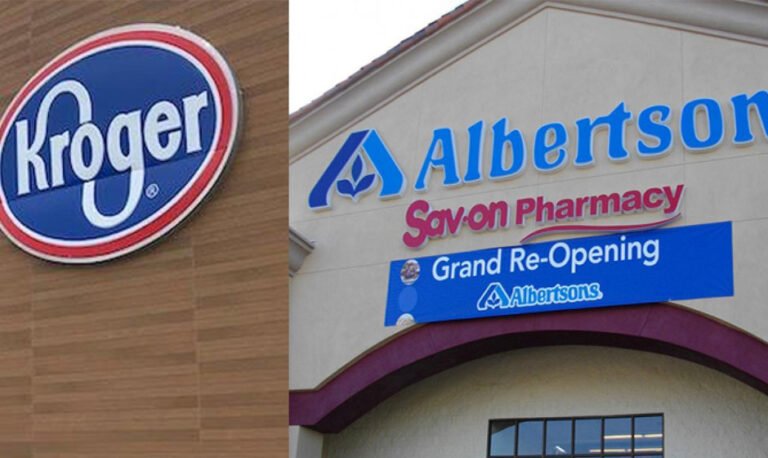Introduction
The potential merger of Kroger and Albertsons, two major grocery chains, has sparked discussions about its impact on consumers. If approved by regulators, this $24.6 billion deal would create a supermarket giant with nearly 5,000 stores and annual revenue of about $200 billion. The merger aims to enhance competitiveness against retail giants like Walmart and Amazon. However, concerns have been raised about potential price increases and store closures. This article explores what the Kroger-Albertsons merger could mean for grocery shoppers.
The Merger Details
Kroger Chairman and CEO Rodney McMullen expressed the intention to bring together two purpose-driven organizations to deliver superior value to customers, associates, communities, and shareholders. The merger will undergo scrutiny from the Federal Trade Commission, and lawmakers are urging regulators to block the deal.
Potential Impact on Food Prices
Kroger and Albertsons have announced plans to reinvest approximately $500 million in cost savings from the merger to reduce prices for customers. Additionally, $1.3 billion will be invested in Albertsons to enhance the customer experience. However, some lawmakers and experts worry that the merger could lead to higher costs for shoppers, especially considering the current trend of soaring food prices. Christine Bartholomew, a law professor and antitrust scholar, points out that while there are statements about an enhanced consumer experience, it remains unclear how costs will actually be reduced for consumers.
A study conducted in 2008 found that prices increased between 3% and 7% in four out of five evaluated mergers. However, it is important to note that the study’s findings may not represent the impact of all mergers. Any increase in food prices could significantly affect consumers, as the cost of food in the U.S. has already risen by 11% compared to the same period last year.
Store Closures and Potential Food Deserts
As the merger progresses, store closures are a possibility, especially in areas where Kroger and Albertsons have overlapping locations. To address regulatory concerns, the combined company is expected to divest 100 to 375 stores, which will be spun out into a separate company under the Albertsons subsidiary. However, the closure of stores may create additional challenges, particularly in terms of food deserts. Christine Bartholomew expresses concerns about the merger potentially exacerbating the issue of limited access to affordable and healthy food in certain areas.
Future Developments and Congressional Scrutiny
The Kroger-Albertsons merger is projected to close in early 2024, pending regulatory and antitrust reviews. Senators Bernie Sanders and Elizabeth Warren have called on the Federal Trade Commission to reject the deal, highlighting concerns about inflated prices and potential employee layoffs. The Senate judiciary antitrust subcommittee has also announced a hearing to examine the proposed merger. With more than half of American grocery sales concentrated among the top five grocers, maintaining competition and affordable food prices is a priority for lawmakers.
Conclusion
The potential merger between Kroger and Albertsons presents both opportunities and challenges for grocery shoppers. While the companies have stated their intention to lower prices and enhance the customer experience, concerns have been raised regarding the actual impact on food prices and the potential closure of stores. Congressional scrutiny and regulatory reviews will play a crucial role in determining the fate of this merger and ensuring a competitive and affordable grocery market for consumers.


